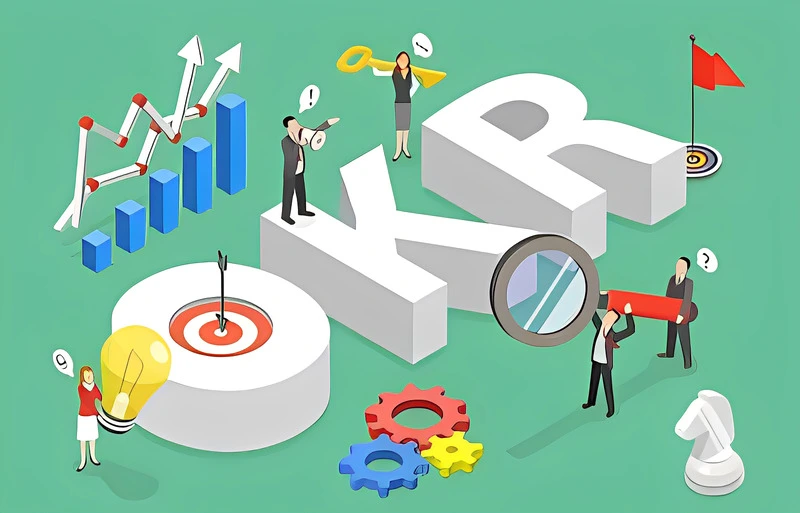Personal OKRs (Objectives and Key Results) are a goal-setting framework that helps individuals set and track their personal and professional objectives. A growth mindset is a belief that abilities and intelligence can be developed through dedication and hard work. Combining these two concepts can lead to significant personal development. Aligning OKRs with a growth mindset ensures that your goals are not just about achieving specific outcomes but also about fostering continuous improvement and learning. This alignment helps in creating a roadmap for personal development that evolves with you.
Understanding Personal OKRs
What are Personal OKRs?
Personal OKRs involve setting specific, measurable, and time-bound objectives to achieve personal and professional goals. They provide clarity and focus, helping individuals track progress and stay motivated.
The Role of OKRs in Goal Setting
OKRs serve as a structured approach to goal setting. They break down larger goals into smaller, actionable key results, making it easier to track progress and adjust strategies as needed.
Benefits of Using OKRs for Personal Development
- Clarity: Clear objectives and measurable key results provide direction.
- Focus: Helps in prioritizing tasks and maintaining focus.
- Motivation: Tracking progress keeps you motivated and accountable.
The Concept of a Growth Mindset
What is a Growth Mindset?
A growth mindset is the belief that abilities and intelligence can be developed through effort, learning, and perseverance. It contrasts with a fixed mindset, which views abilities as static.
How a Growth Mindset Impacts Personal and Professional Growth
Adopting a growth mindset encourages individuals to embrace challenges, persist through difficulties, and view failures as opportunities for growth. This mindset fosters resilience and a proactive approach to personal and professional development.
Key Characteristics of a Growth Mindset
- Embracing Challenges: Seeing challenges as opportunities to grow.
- Persistence: Continuing to work hard despite setbacks.
- Learning from Criticism: Using feedback constructively to improve.
Aligning Personal OKRs with a Growth Mindset
Setting Effective Personal OKRs
To set effective personal OKRs, ensure that your objectives are ambitious yet achievable, and your key results are specific and measurable. Align these with your personal growth goals.
Integrating Growth Mindset Principles into OKRs
Incorporate growth mindset principles by setting OKRs that challenge your current abilities and encourage learning and development. For instance, instead of aiming to “complete a project,” set an objective like “learn a new skill through the project.”
Examples of OKRs that Promote a Growth Mindset
- Objective: Improve leadership skills.
- Key Results: Complete a leadership course, lead a team project, receive feedback from peers.
Developing and Implementing Personal OKRs
Steps to Develop Personal OKRs
- Identify your primary goals and aspirations.
- Break these goals into specific objectives.
- Define measurable key results for each objective.
- Set deadlines and create a plan for achieving these key results.
Strategies for Implementing and Tracking OKRs
- Regular Check-ins: Schedule weekly or monthly reviews to assess progress.
- Adjustments: Be flexible and adjust OKRs as needed based on progress and feedback.
Common Pitfalls and How to Avoid Them
- Setting Vague OKRs: Ensure your objectives and key results are specific and measurable.
- Overloading: Avoid setting too many OKRs at once. Focus on a few key areas.
Measuring Progress and Adjusting OKRs
How to Measure Progress Towards OKRs
Track progress using quantitative metrics and regular reviews. Use tools like spreadsheets or OKR software to monitor achievements and identify areas for improvement.
Adjusting OKRs Based on Progress and Feedback
Regularly review your OKRs and adjust them based on your progress and feedback. This helps in staying aligned with your growth goals and adapting to changing circumstances.
Tools and Techniques for Tracking OKR Success
- OKR Software: Use platforms like Weekdone or Gtmhub for tracking.
- Spreadsheets: Maintain a personal tracking sheet for visual progress.
Expert Insights on Personal OKRs
Quotes and Insights from Experts
- John Doerr, author of Measure What Matters: “OKRs help focus on what really matters, enabling individuals to achieve significant outcomes.”
- Carol Dweck, psychologist and author of Mindset: “A growth mindset is essential for achieving long-term success and overcoming challenges.”
Case Studies of Successful OKR Implementation
- Case Study 1: A tech startup used OKRs to scale its operations, resulting in a 40% increase in productivity.
- Case Study 2: An individual set personal OKRs to improve public speaking skills, leading to a promotion and increased confidence.
Practical Applications and Future Outlook
Emerging Trends in OKR Practices
- Integration with AI: Leveraging AI for tracking and analyzing OKRs.
- Personalized OKRs: Tailoring OKRs to individual strengths and weaknesses.
Practical Tips for Effective OKR Usage
- Start Small: Begin with a few OKRs and gradually expand.
- Seek Feedback: Regularly solicit feedback to refine your OKRs.
The Future of Personal Development through OKRs
The future of OKRs in personal development will likely see increased integration with technology and a greater emphasis on personalized goal setting.
Conclusion
Personal OKRs, when aligned with a growth mindset, can significantly enhance personal development. Setting clear objectives and key results, tracking progress, and adapting based on feedback are crucial for success.
Start implementing OKRs today to foster a growth mindset and achieve your personal and professional goals. Reflect on your progress regularly and adjust your OKRs to stay on track.




